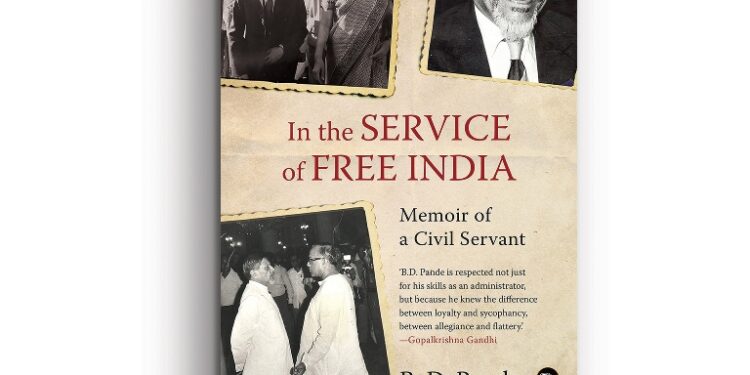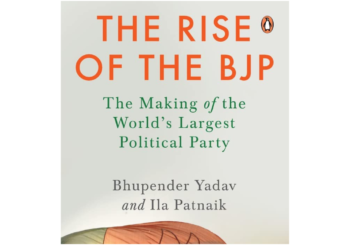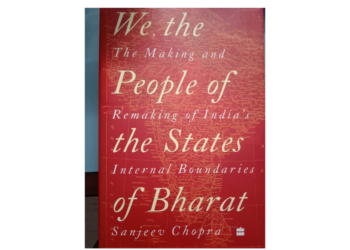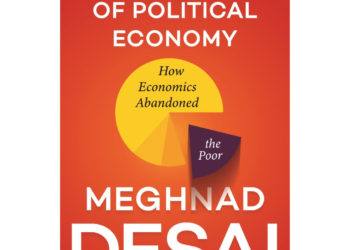BY DR SANJEEV CHOPRA
B.D. Pande is respected not just for his skills as an administrator, but because he knew the difference between loyalty and sycophancy,
between allegiance and flattery.
— Gopal Krishna Gandhi
It is precisely this kind of an officer that Sardar Patel had in mind when he supported the retention of the ICS and IP, as well as the creation of two all-India services — the IAS and the IPS — at his meeting with the premiers of the (then) 11 provinces (Assam, Bengal, Bihar, Bombay, Central Provinces, Madras, NWFP, Orissa, Punjab, Sindh and United Provinces) in October 1946. In his very first address to the first batch of the IAS on April 21, 1948 he said: “You will not have a united India, if you have not a good All India Service, which has the independence to speak out its mind.”
This is also instilled in the minds of the officers at the LBS (Lal Bahadur Shastri) National Academy of Administration where the focus is on professionalism, competence and compassion. Pande avers that officers in the civil service should learn to marshal their facts before the political leadership, speak to them with conviction, and be “ever-ready” for a transfer while in service, and resignation from a sinecure post-superannuation. Given the protection under Article 311, it is indeed not an unreasonable expectation from civil servants!
In his characteristic nonchalant style, he states in the preface that he “has no talent for writing” and that he “has never written a note longer than a page and a half”. However, the 300-odd pages that follow make for exciting and engaged reading. It is a classic autobiography — the personal, the political and professional are inextricably intertwined. The reader gets an idea of the different phases of his life and how they relate to the story of India. Much like the bhadralok from Bengal, the Brahmans from Madras, the Kayasthas of UP and Bihar, the Khatris of Punjab and the Parsees of Bombay, the Kumauni Brahmans too realised the competitive edge of English education in securing prominent positions in health, engineering, education, and the judicial and revenue departments of government. Pande took the ICS exam in 1938 — after completing the mandatory two-year stay in the UK to be eligible to take the exam. Perhaps the idea was to deracinate the Indian entrants to the civil service, but it had its positive effects as well: pedagogy at Cambridge, with its focus on “fundamentals and principles” and interaction with scholars like C.P. Snow left a lifelong impression on him.
Returning to India after the War, he was assigned to the Bihar cadre, which he served in various capacities — from an assistant magistrate to chief secretary. The contrast between the first chief minister, who continued to live in his one-bedroom apartment, and the Seventies when ministers and ex-ministers squabbled over bungalows and perks shows the steep decline in the political ecosystem of the state. Within the first quarter-century of independence, politics was no longer about service and public good, but about personal aggrandisement and caste alignments with an eye on the next election.
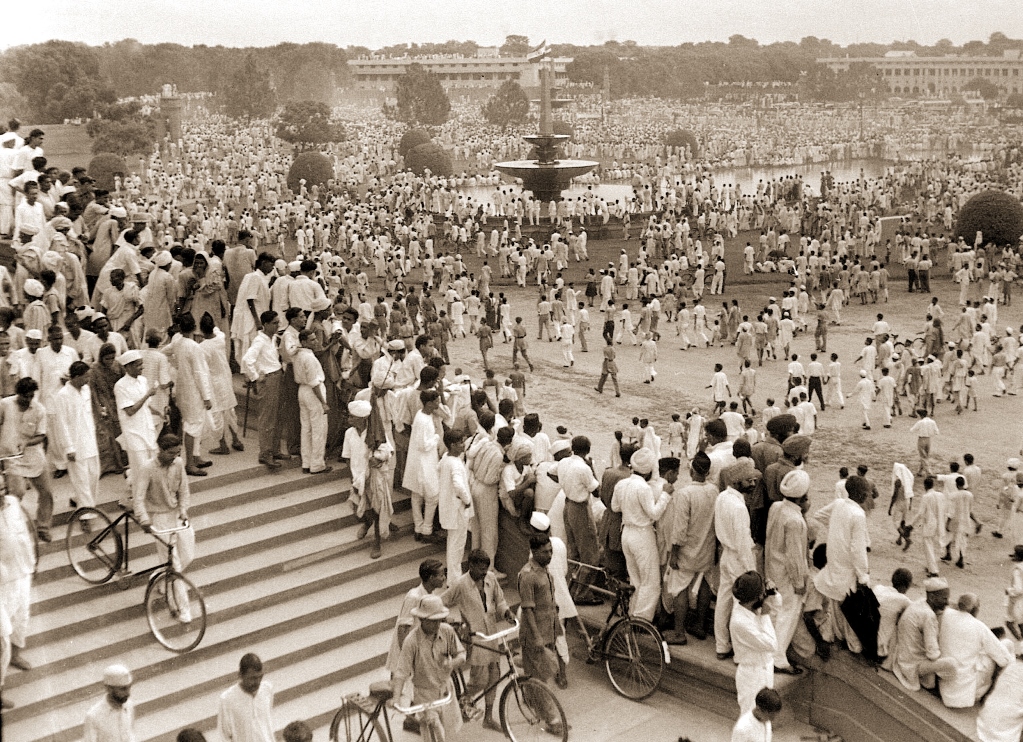
There were many assignments that he missed — including induction into the foreign service, being posted as a DM, the directorship of the LBS National Academy of Administration, and a fellowship to Harvard — because something else came in the way. When it was time for him to become a DM, Bihar was reeling under floods; when he had to take over as the director of the NAA (as the LBSNAA was then called), he was asked to wait by S.K. De until his replacement was found, and then the 1962 war altered so many plans. He was asked to join the procurement team to ensure defence procurement was put on the fast track.
Most interesting are the pithy observations he makes about corruption. According to him, “corruption” got institutionalised when the Imperial government fixed quotas for raising subscriptions for the war bonds. Everyone who came to the DM’s office for renewal of any kind of license was nudged to contribute to the war effort. After the war, the practice was continued for raising funds for the Red Cross societies / staff welfare / contingency funds. These resources came in handy for the revenue officials for taking care of VVIP visits, state guests and the entourage accompanying the VVIPs on their tours. He suggests that there should be adequate funds at the district level to meet such miscellaneous expenditure.
Pande was at the helm of the civil service during the crucial period of the Emergency. One would like to compare his role to that of Vidura in the court of the Kauravas. Like Vidura, he never hesitated to speak truth to power, but also did not want to rock the boat.
Pande had given clear instructions that his book should not be released until five years after his death, or 2001, whichever was later. He did not want any confidences to be broken, and yet he wanted the truth to come out, especially about the bungling and complete mismanagement of Punjab by the central government. The then prime minister, Indira Gandhi, emerges in rather poor light. Punjab was a saga of serial mistakes on her part. Overruling the decision of allotting Chandigarh to Haryana was the first. It was compounded by the fact that she did not fulfil the promise. She was instrumental in the installation of the puppet regime of Laxman Singh Gill which had Jagjit Singh Chauhan, a confirmed
Khalistani, as a minister in Punjab. She created a rift in the Akali Dal for her own purposes and dispensed with the administrative and police hierarchies by according unbridled power to IPS officer P.S. Bhinder, whose wife was a Congress MP. She did nothing to stem the infighting among the top leaders of the Congress — including the former President, Zail Singh, Home Minister Buta Singh and CM Darbara Singh.
In fact, no one emerges as a hero in this sad and sordid story, though the impression is that the legitimate grievances nurtured by the Akali Dal could have been settled if only she could have thought of the nation before party interests. He has shown how the governments of Haryana and Delhi aggravated the situation by treating every Sikh as a Khalistani. The Hindi and Punjabi newspapers in Punjab too played an extremely partisan role in a most difficult period. He gives credit to General K. Sundarji, but in the same vein also holds the then army chief, A.S. Vaidya, responsible for agreeing to launch Operation Blue Star without adequate preparation. The infighting at the top and the institutional breakdown were apparent when there was a reluctance even to keep the Intelligence Bureau chief in the loop before Operation Blue Star. Even if a political decision had to be taken, the IB’s assessment of the likely fallout should have been part of the decision-making process.
Thus, the chapter on Punjab should be compulsory reading for every IAS and IPS officer as well as the top brass of the CPMFs (Central Para Military Forces) and the Army to understand that when government speaks in multiple voices, and its own agencies are not in accordance with one another, it is to the advantage of the adversary. In contrast to the Punjab situation, this reviewer was an assistant magistrate and later SDM of Kalimpong during the Gorkha National Liberation Front (GNLF) agitation and saw the near-perfect coordination between the magistracy, police and the CPMFs with the state political leadership.
Full marks are due to his daughter for making the effort to bring her father’s notes and memoirs into the public domain. The book is also the story of the tensions in the extended family on the decision to cross the seven seas — and is a good account of life in Almora about a century ago.
A corollary would be a translation into Hindi to make the memoir more accessible to all those who are interested in five of India’s most crucial decades. It is also a record of transformation of the country from an extremely poor, agrarian and food deficit economy to one where the right to food and the right to work are guaranteed by the Constitution. As things stand, internal and external migration coupled with urbanisation and demographic stability have made India an economic powerhouse: post-Covid, the country is growing faster than China.
In the Service of Free India is an eminently readable narrative of an Atmanirbhar Bharat!
The author is a historian, public policy analyst, and Festival Director at the Valley of Words, Dehradun. Until recently, he was the Director of the Lal Bahadur Shastri National Academy of Administration, Mussoorie.
@BDPande @SpeakingTiger


